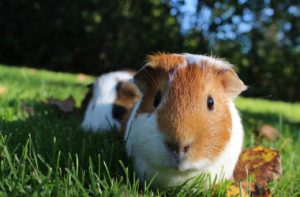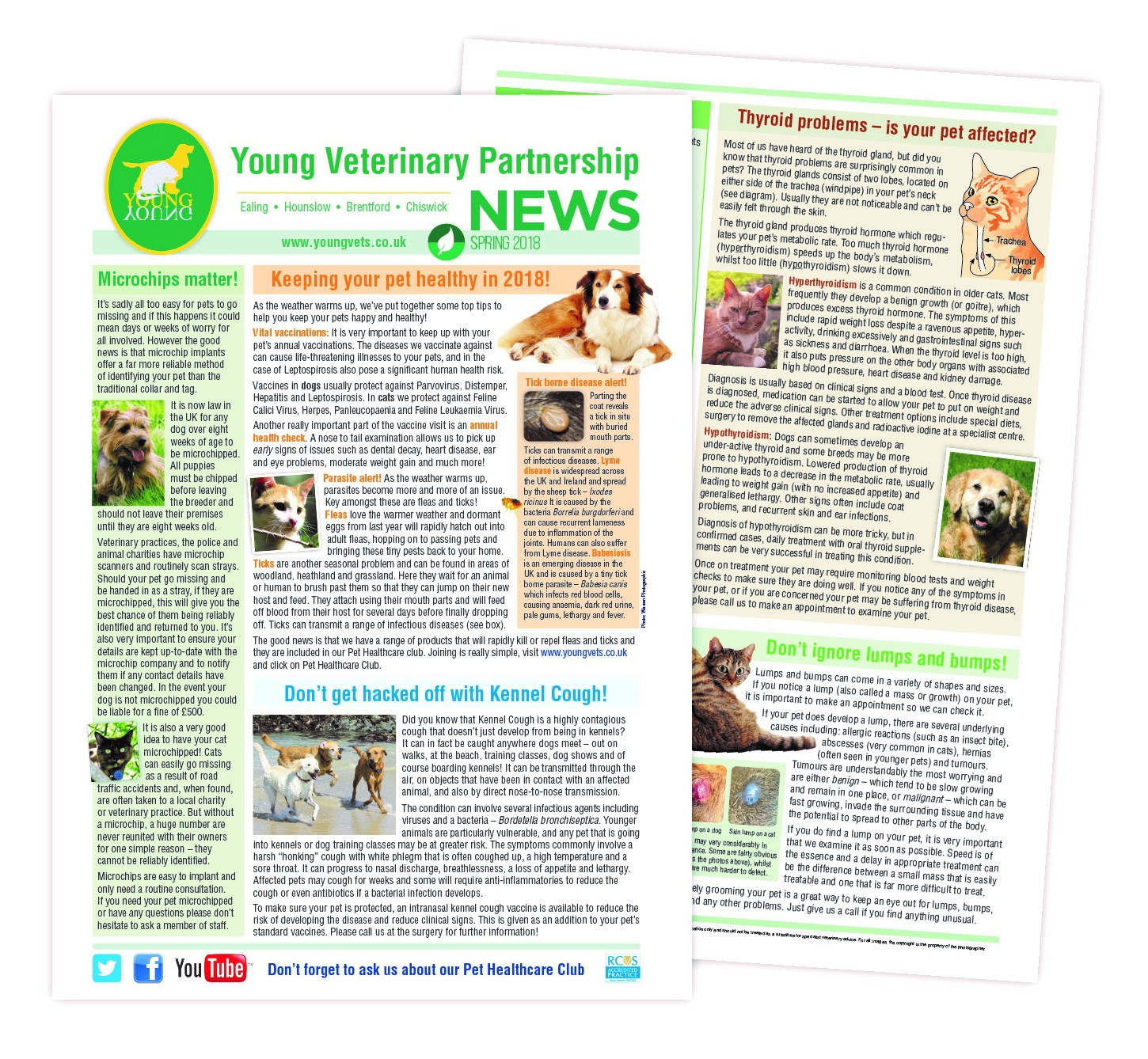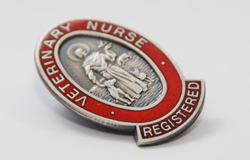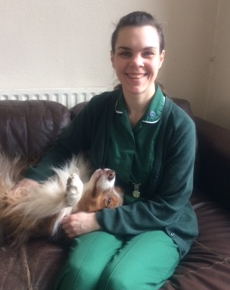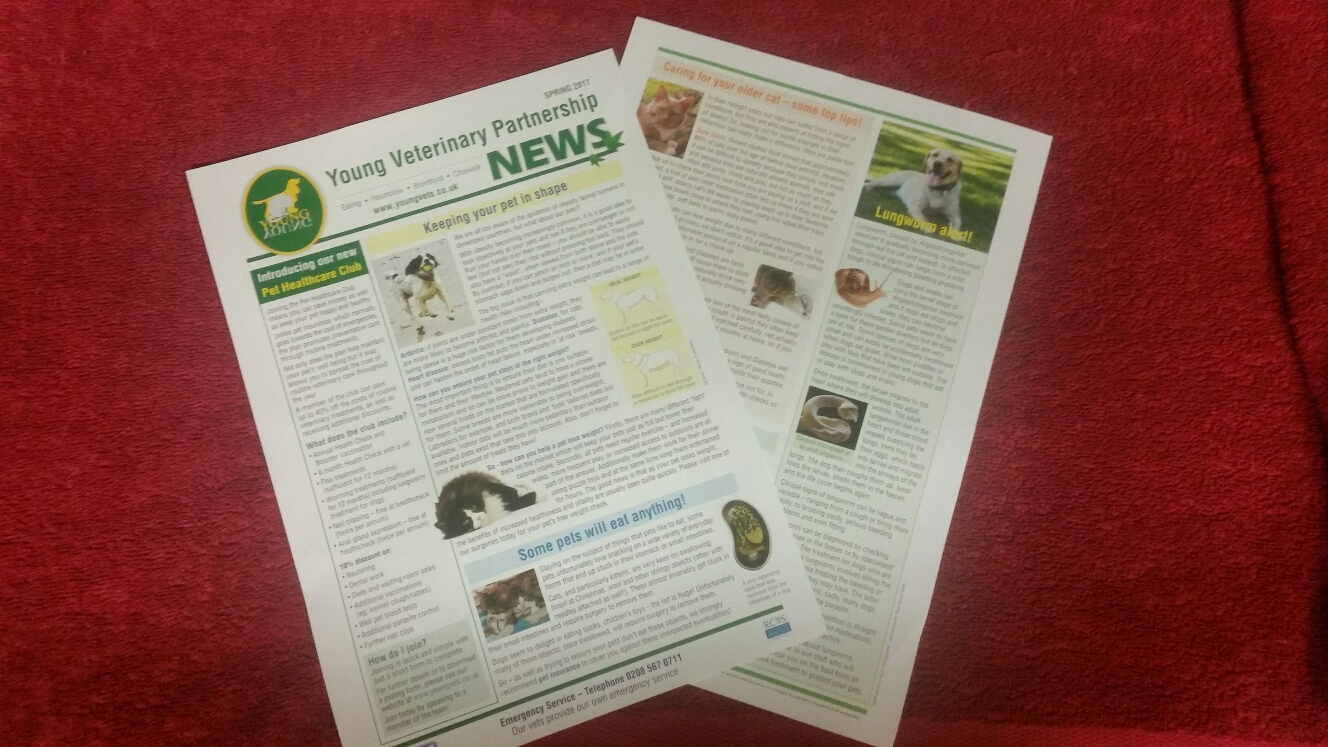Our Spring 2018 newsletter has arrived and it includes some top tips to keep your pets looking and feeling great in 2018! Read it here.
Tick borne disease alert!
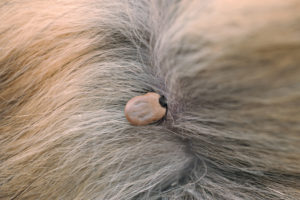
Did you know ticks can transmit a range of infectious diseases. Lyme disease is widespread across the UK and Ireland, it can cause inflammation of the joints, humans can also suffer from Lyme disease too. Understand more about ticks and your pets in our newsletter.
Vital Vaccinations:
The disease we vaccinate against can cause life – threatening illnesses to your pets, and in the case of Leptospirosis also pose a significant human health risk. Understand what other conditions we can vaccinate your pet against in our spring newsletter.
Microchips matter!
It is now law in the UK for any dog over the age of 8 weeks old to be microchipped. In the event your dog is not you could be liable for a fine of £500. Microchips are easy to implant in a routine consultation for both cats and dogs. Our newsletter explains how beneficial microchips are for both dogs and cats.
Thyroid problems – is your pet affected?
You may of heard of the Thyroid gland – but did you know your pet has them too! Understand more about the thyroid gland, what it does and the common conditions that can effect the glands.
Guinea pigs make excellent pets!
They are easy to handle, inquisitive, rarely bite and communicate with a wide range of sounds. Our newsletter can give you advice for caring for your guinea pig, the conditions that they can suffer from, how and where to house them, they dietary requirements and exercise requirements. Guinea pigs are social animals and should always be kept in pairs or groups of the same sex. If you are thinking of getting a guinea pig, please don’t hesitate to contact our team for help and advice on their needs and requirements if you need to know more.
